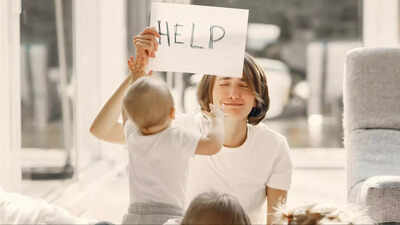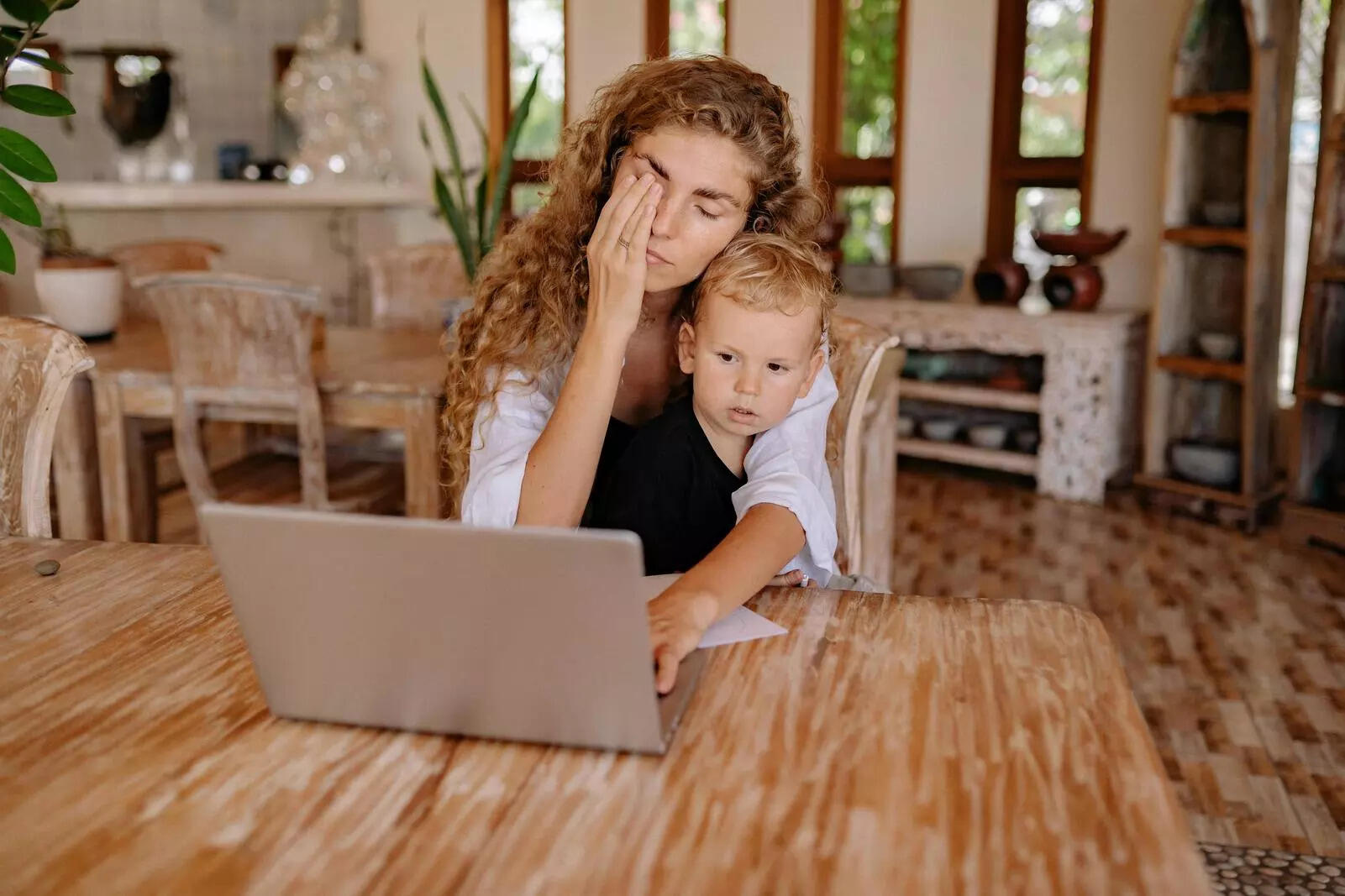ARTICLE AD BOX

Understanding parental burnout: Causes, effects and 5 effective recovery strategies. (Image: Pexels)
If you’ve felt “done” by 6 p.m., you are not alone. Unlike normal stress, parental burnout is a distinct syndrome that comes with real risks but the good news is that specific, proven practices help parents regain their capacity without skipping a beat.
Parenting today is both beautiful and exhausting. With competing demands of career, household and personal well-being, many mothers silently carry the weight of trying to “do everything and all”.According to studies on the Internet, nearly 45-50% of parents with children under 18 say their stress is so high that they can’t function most days and nearly half describe it as overwhelming. Clearly, burnout is real but balance is definitely possible.
What “parental burnout” actually is
In the 2018 Frontiers in Psychology study, psychologists who created the Parental Burnout Assessment (PBA) describe burnout as four parts: exhaustion, emotional distancing from one’s children, feeling fed up (saturation) and a sense of contrast with one’s previous self. Burnout is more than being tired. A landmark 2018 study in Child Abuse & Neglect found it uniquely predicts neglect and violence toward children and links to escape and suicidal ideation over and above depression or job burnout.
The authors report “a specific effect on child neglect and violence,” highlighting the urgency of early intervention.

Are you suffering from parental burnout? Discover the signs and solutions! (Image: Pexels)
Burnout also varies by culture and context. A 2024 systematic review synthesizing studies from 2010–2023 shows risks cluster across levels: individual (e.g., neuroticism, perfectionism), interpersonal (marital quality), community (hours spent caregiving, child behaviour challenges, social support) and cultural values (individualism vs.
collectivism). Published in BMC Public Health, it concluded that “social support… strongly protected” against parental burnout.
Here are some ways parents can recharge while raising children with resilience and joy
Choose value-driven circlesChildren thrive in environments that emphasize compassion, empathy, courage and wisdom. In an interview with TOI, Pallavee Dhaundiyal Panthry, Founder of Amigoz Sphere (an initiative that inspires parents and children to embrace compassion, courage and balance in everyday life), shared, "By choosing communities that uphold these values, mothers not only find support but also create spaces where their children absorb them naturally.
"She added, "Strong networks of friends, mentors, and family can ease both emotional and practical burdens. Sharing experiences and encouragement reduces isolation and reminds mothers that parenting is a collective journey." Social support from partners, family, school and community reduces parental burnout. A 2024 study in BMC Public Health recommends “multi-dimensional support” across home, school, community and policy layers.
Try to schedule a rotating kid-swap hour with a nearby family; ask one concrete favour per week (“Could you do Wednesday pickup?”).Bringing her expertise to the same, Panchali Gupta, Founder of Chorus Foundation, asserted that community is strength where support groups and inclusive circles are a lifeline. Knowing that other parents understand your journey brings comfort, courage and a sense of belonging. Parenting was never meant to be done alone.Lead spiritual awareness and discipline by exampleChildren learn less from what we preach and more from how we live. In other words, children learn by watching us, not by listening to lectures. Panthry opined, "Introducing practices of gratitude, self-reflection and mindfulness, along with simple routines such as consistent waking hours, meal times and bedtime - anchors the household in balance. When children see their parents follow discipline with patience and steadiness every day, they naturally absorb it without needing instructions.
"Gupta too encouraged to lead by example and said, "The way we handle stress, routines and emotions becomes their unspoken guide. Living values every day has been the most powerful way to teach them."Protect your own well-beingWhile mothers tend to prioritise everyone else first, nurturing their own well-being is the true foundation of a healthy family. Panthry said, "Whether it’s exercise, meditation, or even 20 minutes of solitude, nurturing your health safeguards your ability to nurture others."
Build self-compassion to buffer work–family strain. A 2025 study found self-compassion dampens the pathway from work–family conflict to parental burnout to harsher parenting.
In the authors’ words, “self-compassion significantly moderates the relationship”. So, when you miss a school form or lose your cool, use a 3-step script: “This is hard,” “I’m not alone,” “What’s a kind next step?”Keep your passions aliveParenthood does not mean shelving personal aspirations. Panthry said, "Pursuing hobbies, creative work, or professional goals helps mothers stay joyful and fulfilled, while showing children the importance of balance and purpose."Celebrate unique milestonesSuccess isn’t always measured by grades or trophies. Gupta said, "Sometimes it’s the joy of a first independent step, a new word spoken, or a moment of courage. Learning to celebrate the “small big things” redefines parenting."

Is parental burnout the hidden crisis of modern parenting? (Image: Pexels)
Choose joy over perfection. There are hard days but choosing joy in little things, a shared laugh, a new attempt, or simply being together, creates strength and hope. Trade perfectionism for “good-enough and consistent”.
Across studies summarised in the BMC Public Health 2024 review, perfectionism and high need for control raise burnout risk, while agreeableness and conscientiousness protect against it. Pick two family routines to do reliably (e.g.
, bedtime, backpacks by the door). Consistency beats intensity for lowering daily friction.Burnout is real, common and reversible. This week, start with a small, repeatable change (preferably sleep or a 10-minute mindful parenting rep) and enlist the support of one person. The evidence indicates that is the beginning of the recovery curve.



.png)
.png)
.png)
















 1 day ago
1
1 day ago
1









 English (US) ·
English (US) ·